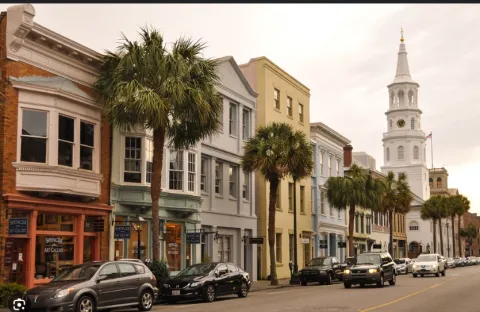
South Carolina is increasingly popular among retirees for its charming blend of natural beauty, rich history, and Southern hospitality. This article explores the key aspects of living in South Carolina, focusing on retirement, and comparing them to the national average in various categories: overall quality of life, cost of living, crime and safety, access to quality healthcare, weather, and culture.
South Carolina offers a generally high quality of life, characterized by a slower pace, warm climate, and a variety of outdoor activities. The state's diverse landscapes include coastal beaches, scenic mountains, and lush forests, providing ample opportunities for recreation. The cost of living is lower than the national average, making it an attractive destination for retirees. Moreover, the state's emphasis on community and friendly atmosphere contributes to a welcoming environment for newcomers.
National Average Comparison: South Carolina tends to have a more relaxed lifestyle compared to the national average, with a strong focus on community and outdoor living. While some areas may lack the urban amenities of larger states, the overall quality of life is generally favorable for retirees seeking a peaceful and scenic environment.
South Carolina is known for its affordable cost of living, which is generally below the national average. Housing costs, in particular, are quite reasonable, with median home prices significantly lower than in many other states. This affordability extends to other expenses, including groceries, utilities, and transportation. Retirees can often find comfortable living arrangements without stretching their budgets, making the state an attractive option for those on fixed incomes.
National Average Comparison: The cost of living in South Carolina is consistently lower than the national average, particularly in housing. This affordability makes it a popular choice for retirees looking to maximize their retirement savings.
South Carolina has a mixed reputation regarding crime and safety. While some areas, particularly larger cities like Columbia and Charleston, have higher crime rates, many smaller towns and rural areas boast lower crime rates and tight-knit communities. The state has been working to improve public safety, but it's crucial for retirees to research specific areas to find communities that align with their safety preferences.
National Average Comparison: South Carolina's crime rates vary significantly by location, with some areas experiencing higher crime levels than the national average. However, many smaller communities offer a safer environment, comparable to or better than the national average.
Healthcare in South Carolina is a mixed bag. The state has several well-regarded medical facilities, particularly in larger cities like Charleston and Greenville. However, access to quality healthcare can be limited in more rural areas. The state's healthcare system has room for improvement, particularly in addressing healthcare disparities and increasing the availability of specialized care.
National Average Comparison: South Carolina's healthcare quality and access are generally on par with or slightly below the national average. While urban centers offer good medical services, rural areas may lack comprehensive healthcare options, which is a consideration for retirees needing consistent medical attention.
South Carolina's overall tax burden is moderate compared to other U.S. states. The state ranks in the middle of the pack, with a tax burden that includes relatively low property taxes and a moderate sales tax rate. South Carolina does impose a state income tax, which, while not among the highest in the nation, contributes to the overall tax load for residents.
In comparison to other states, South Carolina offers a relatively balanced tax environment. While it doesn’t have the lowest tax burden, it is also not among the highest, making it an attractive option for residents looking for a state with manageable taxes. The combination of moderate taxes and relatively affordable living costs makes South Carolina competitive with other states in terms of overall tax burden.
South Carolina boasts a rich cultural heritage, with a blend of Southern traditions, historical sites, and a growing arts scene. The state is known for its hospitality, delicious cuisine, and festivals celebrating everything from music to local history. Charleston, in particular, offers a vibrant cultural scene with numerous galleries, theaters, and historical tours. The state's commitment to preserving its heritage while embracing modern influences makes it a unique place to live.
National Average Comparison: South Carolina's culture is steeped in Southern traditions, offering a distinctive experience compared to the national average. The state's emphasis on hospitality and community events makes it a culturally rich destination for retirees.
South Carolina enjoys a warm, subtropical climate with mild winters and hot, humid summers. This climate is particularly appealing to retirees looking to escape colder northern winters. The coastal regions benefit from ocean breezes, while the upstate areas experience slightly cooler temperatures. However, the state is prone to hurricanes, particularly along the coast, which can be a concern for residents.
National Average Comparison: The state's mild winters and long, warm summers are warmer than the national average. The pleasant weather is a significant draw for retirees, although the risk of hurricanes in coastal areas is an important consideration.
South Carolina offers a compelling blend of affordability, natural beauty, and cultural richness, making it an attractive option for retirees. While the state has its challenges, particularly in healthcare access and crime in certain areas, its overall quality of life, cost of living, and warm climate are significant draws. Retirees considering South Carolina will find a welcoming community and a relaxed lifestyle, well-suited for enjoying their golden years.




